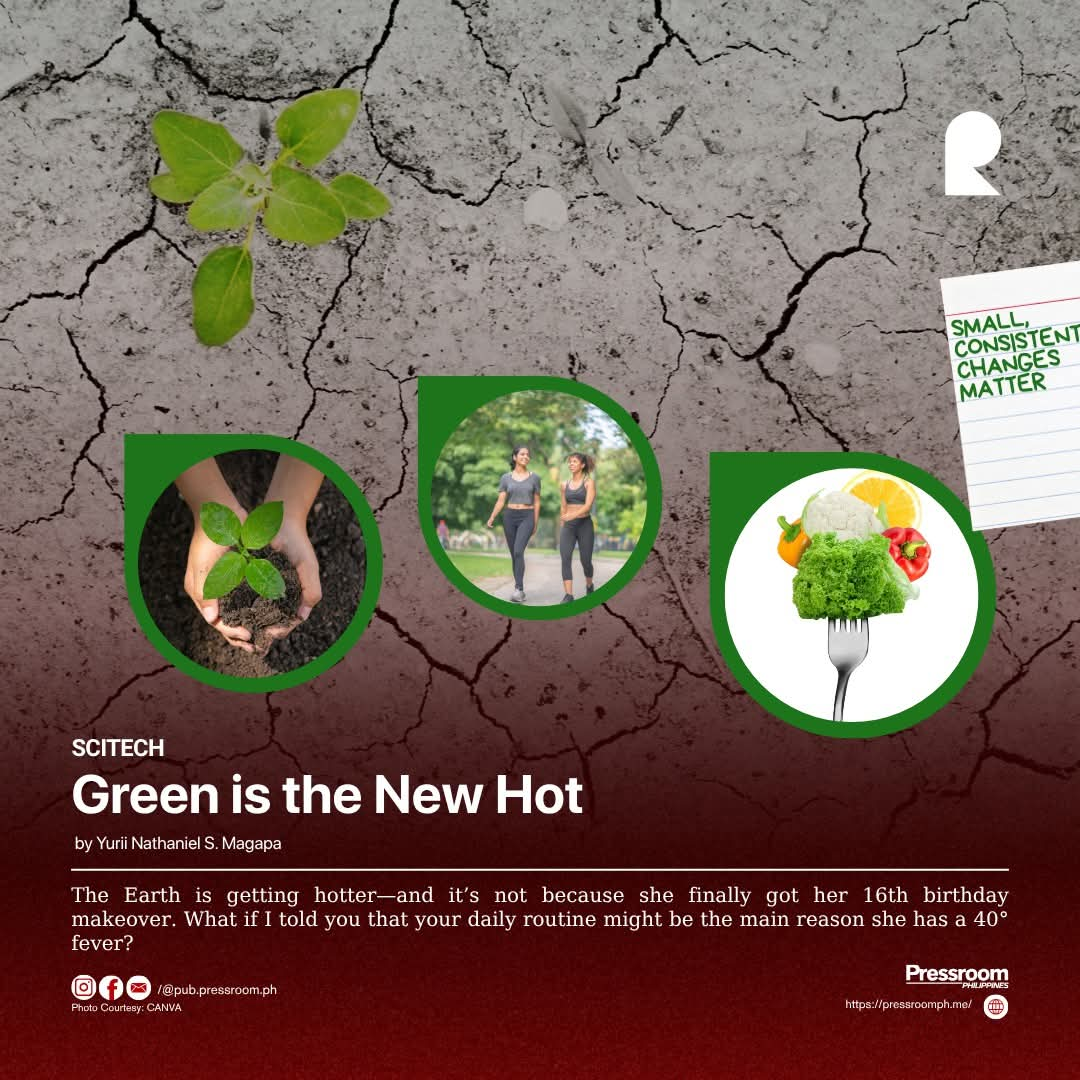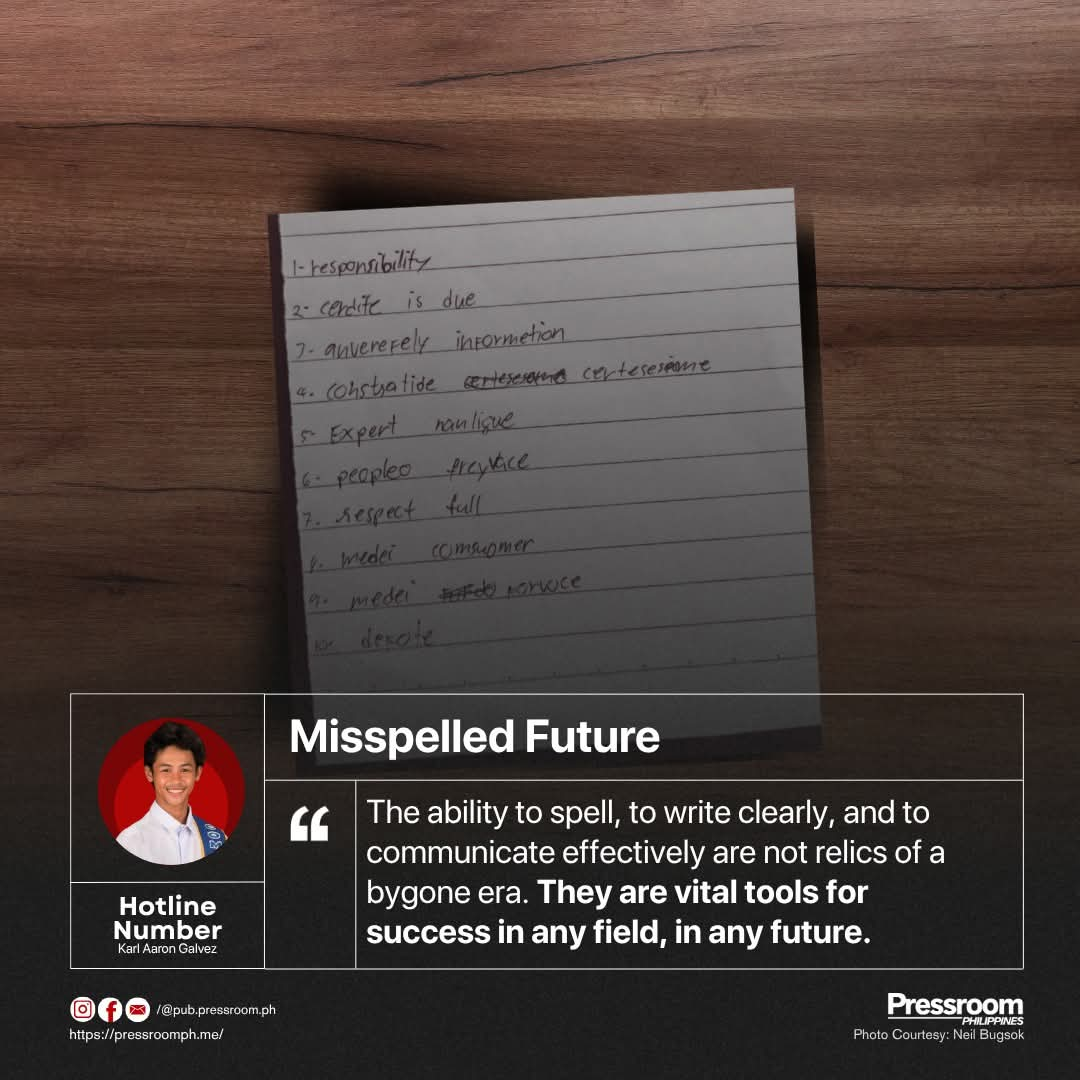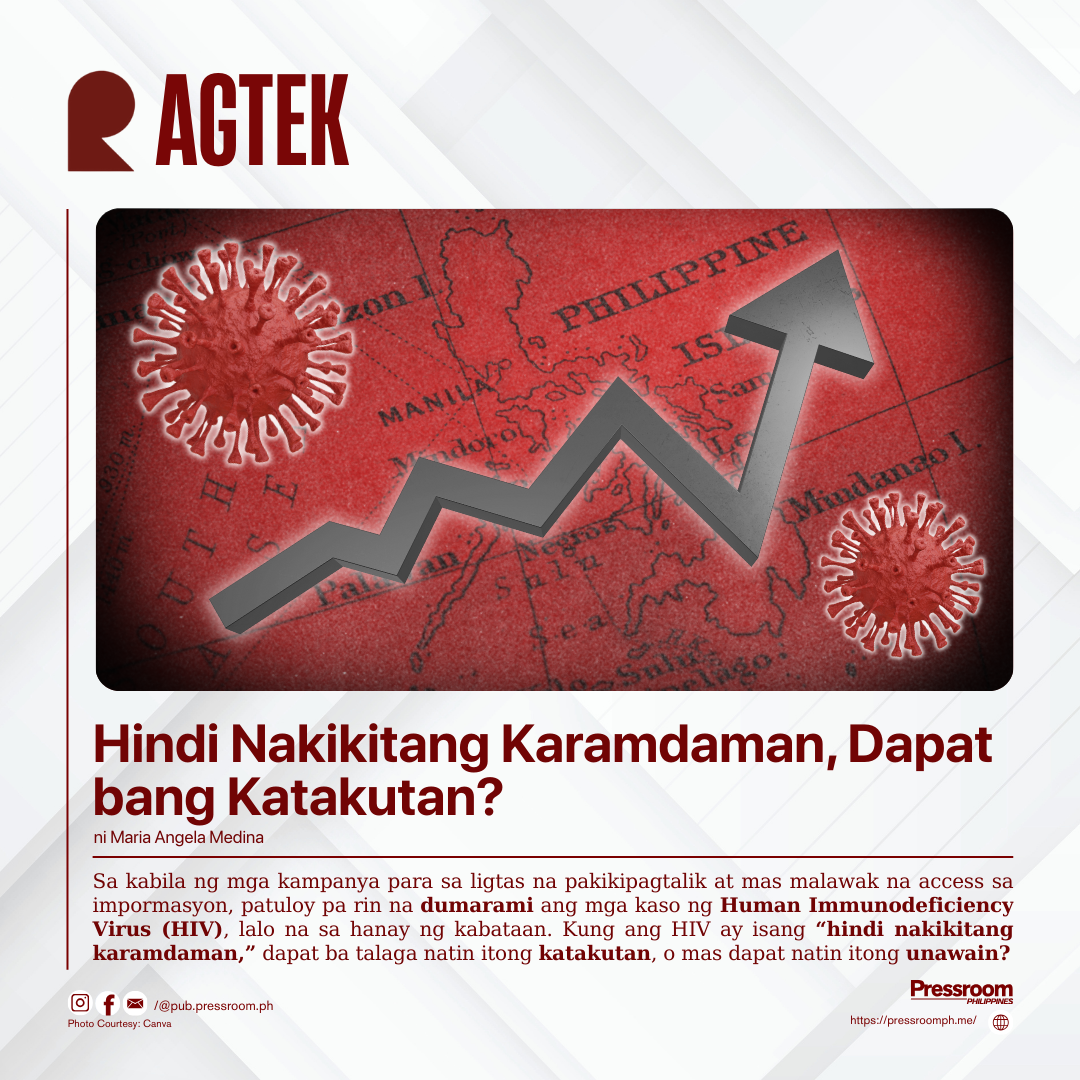𝘃𝗶𝗮 𝗬𝘂𝗿𝗶𝗶 𝗡𝗮𝘁𝗵𝗮𝗻𝗶𝗲𝗹 𝗦. 𝗠𝗮𝗴𝗮𝗽𝗮, 𝗣𝗿𝗲𝘀𝘀𝗿𝗼𝗼𝗺 𝗣𝗛
The Earth is getting hotter—and it’s not because she finally got her 16th birthday makeover. What if I told you that your daily routine might be the main reason she has a 40° fever?
One day, a student woke up, turned on the fan, scrolled through social media, and took a 10-minute shower. It seemed like a normal day, right? But somewhere in the Arctic, a chunk of glacier sighed and fell directly into the ocean. A coincidence? Not quite. Environmental conservation isn’t just about hugging trees or protesting in leafy clothes—it’s about making daily choices that either help or harm the only home we’ve got.
So what exactly can ordinary individuals actually do about it?
To start with, the world produces over 2 billion tons of waste every year—and almost a third of it isn’t managed properly. In the Philippines alone, approximately 2.7 million tons of waste are dumped into the environment annually. That’s equivalent to hundreds of thousands of dump trucks heading straight for the seas and rivers.
Sorting trash used to seem like a chore to many. In reality, only a few people actually practice proper waste segregation. Litter is everywhere, and some parks don’t even have basic waste separation systems—making the problem worse. This leads to health hazards, environmental pollution, and wasted resources. Despite the growing list of environmental issues, humanity continues to destroy the only planet we can call “home.”
In some households, interior design trends now mimic mini forests—often for aesthetic purposes. But it turns out that such designs can actually reduce pollution. Indoor air pollution, a real and often overlooked issue, especially in urban homes, is being addressed in subtle ways.
According to a study by the National Aeronautics and Space Administration (NASA), common houseplants like aloe vera (Aloe barbadensis miller) can absorb harmful toxins such as benzene and formaldehyde—airborne pollutants that may cause cancer.
Many grew up believing that meals weren’t complete without a serving of meat. Over time, however, it became clear that livestock farming is responsible for about 14.5% of global greenhouse gas emissions and consumes significant amounts of land, water, and grain.
Switching to plant-based meals, even occasionally, can help. It's not only healthier but also reduces carbon footprints in measurable ways. Small, consistent changes matter.
Whenever possible, walking is best. If not, biking comes next. And when the weather turns harsh, public transportation is a good option. According to the International Energy Agency, the transportation sector contributes nearly a quarter of global CO₂ emissions—most of which come from cars.
Private vehicles are convenient—but at what cost? Even short daily decisions make a difference. Taking a jeepney or walking might not seem revolutionary, but collectively, these actions ease traffic, reduce fuel demand, and help clean up cities—and quiet them down, too.
Many people often say that small, individual actions can’t possibly stand against large-scale environmental destruction. After all, 100 corporations are responsible for 71% of global industrial emissions, right?
So what’s the point of skipping a straw if oil giants continue drilling?
It’s easy to feel powerless—but history tells a different story. Social change has always begun with individuals making intentional choices. The global movement to ban plastic bags and straws didn’t start with government mandates—it began with advocates speaking up, opting out, and shifting consumer demand.
Choices send signals. When people choose sustainable products, companies notice. When they support eco-friendly businesses, markets adapt. If enough individuals care, systems begin to change. We are not powerless—we’re simply underestimating our influence.
So where does this leave us?
Here’s a likely future: environmental conservation will no longer be an “option” but a necessity. In a few years, sustainable living won’t just be an ethical choice—it will be a survival strategy.
But the most powerful transformation begins with each person changing—not tomorrow, not on the next Earth Day, but now.
So plant a tree. Join clean-up drives. Walk to the store. Buy local. Eat less meat. Talk about climate change like it’s urgent—because it is. If the Earth is getting hotter, then it’s time we become the cool-headed generation that takes action.
After all, green is the new hot—and this time, it’s not just a trend.






